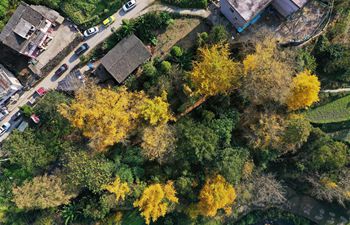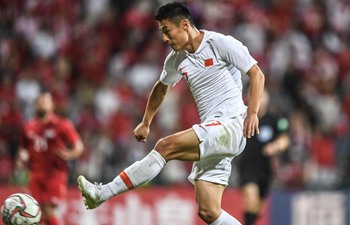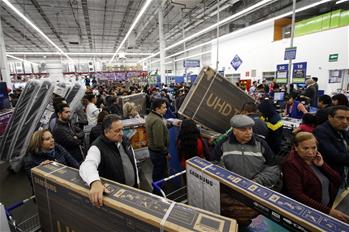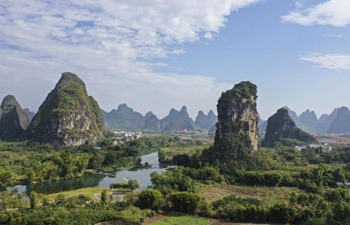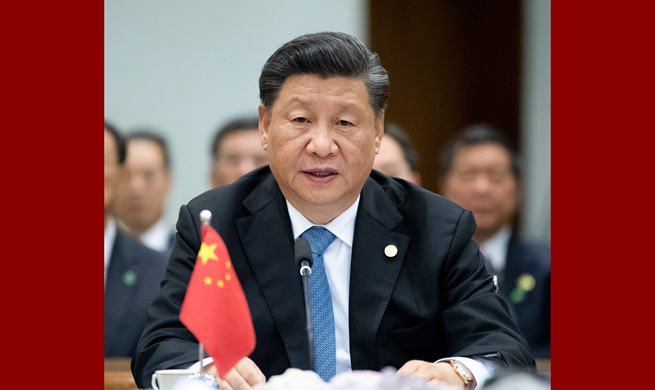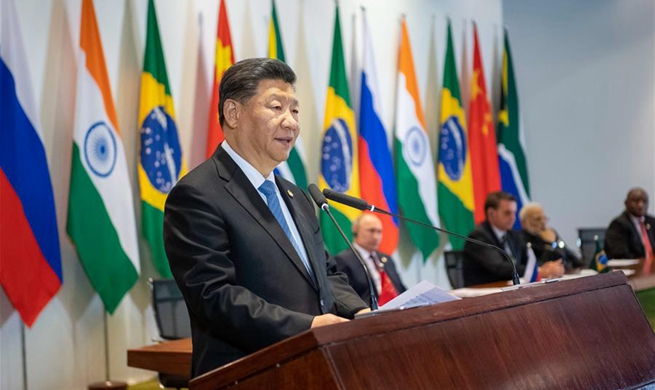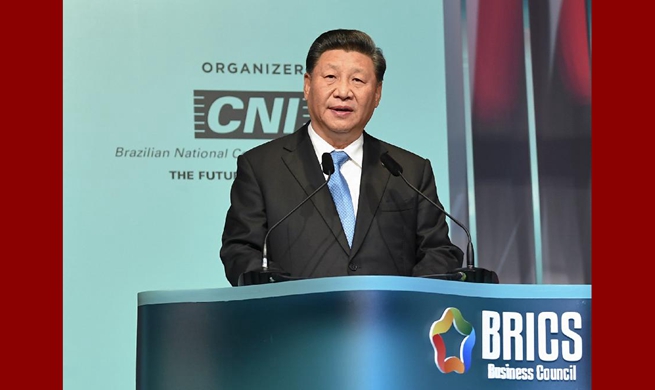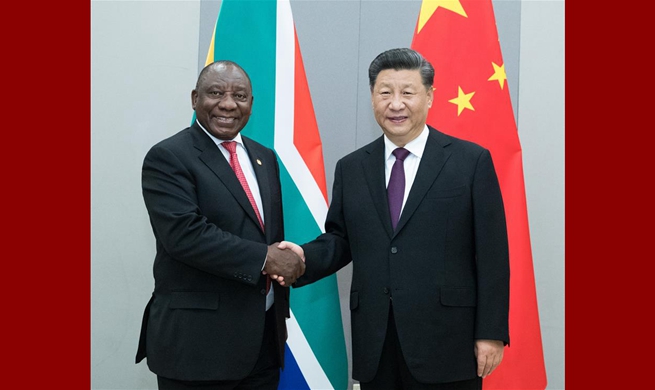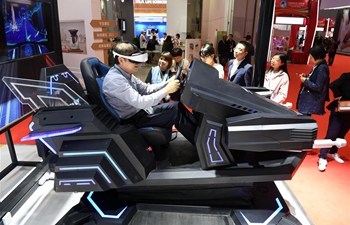TOKYO, Nov. 15 (Xinhua) -- Senior Japanese and South Korean foreign ministry officials in talks on Friday failed to make substantial progress over a wartime labor feud that has spilled over into a trade row and seen bilateral ties sink to the lowest in recent years between both countries.
Shigeki Takizaki, the director-general of the Japanese Foreign Ministry's Asian and Oceanian Affairs Bureau, and Kim Jung-han, South Korean Foreign Ministry's director-general for Asian and Pacific Affairs, met in Tokyo for about two and a half hours.
The talks marked their first in about a month. Despite discussing the issue of Japan's use of forced laborers during its 1910-1945 colonial rule of the Korean Peninsula dominating the talks, little progress was made, sources close to the matter said.
Japan on Friday stuck to its line that the rulings made by South Korea's top courts for Japanese firms to pay compensation to the plaintiffs connected to the forced wartime labor issue, are not in line with international law and run contrary to the foundation of friendly and cooperative relations between the two neighbors since the 1965 normalization of diplomatic ties.
Japan has maintained that the matter of compensation for wartime labor was "finally and completely" resolved under the pact and doubled-down on its belief that the rulings contravene international law.
Takizaki on Friday reiterated Japan's stance that South Korea must "immediately correct" the situation, while the South Korean side, for its part, could not present any solutions for a breakthrough to the impasse, ministry officials said.
As tensions escalated between both sides following the wartime labor row, Japan hit back with tighter export controls on some materials used in high-tech products by South Korean firms, including some essential for use in smartphone displays and chips, mainstays of South Korea's tech-forward economy and integral to some key supply chains that flow from Japan and through South Korea onward.
Japan went on to remove South Korea from its "whitelist" of nations entitled to simplified export control procedures. It is the first time Japan has revoked a countries' trusted trade status.
Seoul had been on the "whitelist" since 2004 and had been guaranteed preferential treatment in terms of importing certain products from Japan.
South Korea retaliated by taking Japan off of its own "whitelist" of trusted trade partners and announced tighter restrictions on certain imports from Japan, including coal ash and some waste recycling materials.
South Korea followed up by announcing its decision to scrap the General Security of Military Information Agreement (GSOMIA) with Japan, on exchanging classified military information.
GSOMIA is a bilateral military intelligence-sharing accord signed between both countries in November 2016. The pact between both sides has enabled the two neighbors to share military information.
The accord comes up for renewal each year, but can cancelled by either party giving notice by August 24, which South Korea has done.
Japan has been urging South Korea not to cancel the pact, and Takizaki on Friday called on South Korea to "act prudently" regarding the pact, according to the foreign ministry here.
Seoul has, however, suggested its decision to scrap the pact could be reviewed if Japan rethinks its tightening of export controls on South Korea, which was reiterated by the South Korean side on Friday, officials said.
At a press briefing following the meeting, a senior Japanese official said that the discussions will continue and that Japan will keep seeking dialogue with South Korea on the divisive issues through diplomatic channels.
